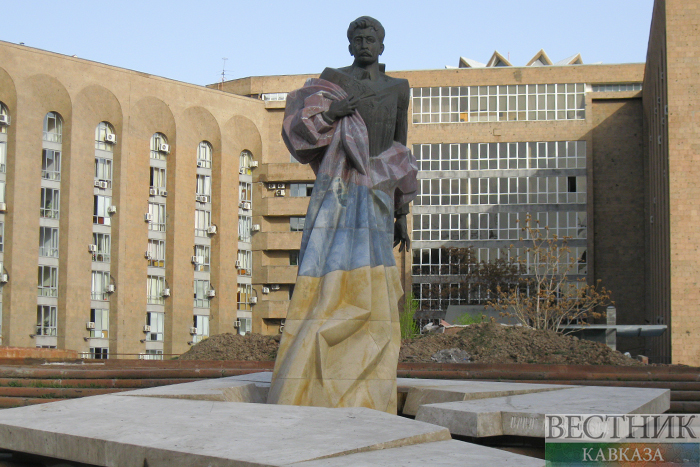Re: Can Turkey Learn Tolerance?
One wonders if there is a secret handbook they consult.
Like the "Kars occupied one of the essential strategic places, connecting Anatolia with the Caucasus, and invaders – Urartian, Armenian, Byzantine, Ottoman – had to have it." bit. I've seen the identical line a number of times before. One of the most ridiculous was in the form of a statement that Ani is not an Armenian city but an Urartian one since Urartians were there first and the Armenians are just invaders (that was in the Global Herritage Fund's secret report on Ani - one of its staff members almost got dismissed for giving me a mere glance at it. I wish I had paid more attention to its contents than that mere glance - it is still a secret, unreleased report. It is full of lies and propaganda so they could get permission from Turkey to take control of Ani - which they wanted so that they could get access to millions of dollars of funds from European and Japanese foundations They got the control - but not the money since the global recession started).
And of course, they never call the current lot of Turks "invaders" - everyone is an "invader" except the actual invader!
Originally posted by TomServo
View Post
Like the "Kars occupied one of the essential strategic places, connecting Anatolia with the Caucasus, and invaders – Urartian, Armenian, Byzantine, Ottoman – had to have it." bit. I've seen the identical line a number of times before. One of the most ridiculous was in the form of a statement that Ani is not an Armenian city but an Urartian one since Urartians were there first and the Armenians are just invaders (that was in the Global Herritage Fund's secret report on Ani - one of its staff members almost got dismissed for giving me a mere glance at it. I wish I had paid more attention to its contents than that mere glance - it is still a secret, unreleased report. It is full of lies and propaganda so they could get permission from Turkey to take control of Ani - which they wanted so that they could get access to millions of dollars of funds from European and Japanese foundations They got the control - but not the money since the global recession started).
And of course, they never call the current lot of Turks "invaders" - everyone is an "invader" except the actual invader!









Comment